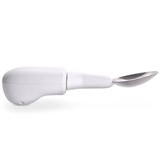This is a question that has been frustrating Professor Jeffrey Soar, Chair in Intelligent Domestic Healthcare Infrastructure at University of Southern Queensland (USQ).
"Technologies are increasingly available but the challenge is getting those technologies into the hands of people who can benefit," Prof Soar said.
"We need quality research data to prove the benefit and aged care is a poorly funded sector so they don't have the money to put at risk."
With a background in healthcare management, Prof Soar commenced research in the field more than a decade ago.
"I was approached by a recruiter for a position to build an eHealth Centre at the University of Wollongong and found that there was a large need for the benefits that technology can provide in aged care and community care, so that is the area I focused on and stayed in."
His research investigates how intelligent and assistive technologies can address the four main issues in aged care.
"Falls, incontinence, social isolation and cognitive decline are the major issues for the elderly – about one third of people over the age of 65 have a fall once a year and that is often the trigger for people to end up in a nursing home.
"Fifty percent of residents have problems with incontinence and more than one third of residents don't have visitors, social isolation can lead to depression. The objective of my research is helping people live so they are more independent."
Prof Soar has also worked with various aged care providers to research and implement technologies, including Lutheran Community Care in Toowoomba.
Manager of the centre Terry Arthur, who oversees care for approximately 150 residents, said they first collaborated with USQ on the implementation of an electronic care plan system several years ago.
"More recently we worked with Jeff to implement a 'Bed Exit Centre' – an electronic underlay that alerts staff if a resident gets out of bed during the night – which is particularly beneficial for residents with mobility or dementia problems," Arthur said.
"A key feature of the system is that we can accurately track when someone exited their bed and when a staff member responded, which is information families need.
"These technologies are better for staff, better for residents and better for families."
With ageing parents, Prof Soar is acutely aware of the need to streamline information for families and carers.
"I have experienced rapid ageing of my own parents and like most people that comes without warning and it's very hard for someone to know how to navigate what is a highly complex sector.
"How do you get access to services? What services are free? What services do you need to pay for? There is no single point of contact, not one agent – that is the history of the sector and that is how it has evolved.
"Technology has provided us with incredible conveniences – we can find the best flights and the best rooms all online – so it's frustrating that we don't have access to better health information online."







